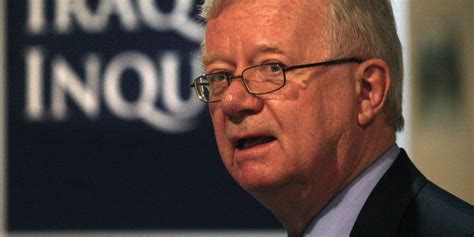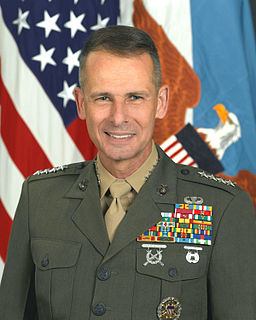A Quote by John Chilcot
The U.K. military role in Iraq ended a very long way from success.
Related Quotes
If they succeed in creating an inclusive structure in virtually any peaceful form, Iraq succeeds. If they fail, the U.S.-led coalition fails almost regardless of its military success and that of the new Iraqi forces, and Iraq will move towards division, paralysis, civil conflict and/or a new strongman.
Power... Military success is not sufficient to win: economic development, institution-building and the rule of law, promoting internal reconciliation, good governance, providing basic services to the people, training and equipping indigenous military and police forces, strategic communications, and more of these, along with security, are essential ingredients for long-term success.
You have two nations, Iraq and Iran. And they were essentially the same military strength. And they'd fight for decades and decades. They'd fight forever. And they'd keep fighting and it would go - it was just a way of life. America got in, we decapitated one of those nations, Iraq. I said, "Iran is taking over Iraq." That's essentially what happened.
I was in the White House, probably the only administration I'll ever work for. The administration was not a success, neither at home nor abroad. The Iraq War was not a success. The condition of the average person was not enough better at the end of seven years of George Bush than it was at the beginning, and certainly it all ended in the collapse that was the Great Recession. So I feel a sense of karmic obligation to the universe because of that.
Ending torture and tyranny in Iraq was not a mistake. Supporting democracy in Iraq is not a mistake. Helping the long-suffering Muslims of Iraq who now seek to live democratically is not a mistake. In the long, long history of the Middle East, this breakthrough may one day be ranked as a dramatic turning point in regional history.


































